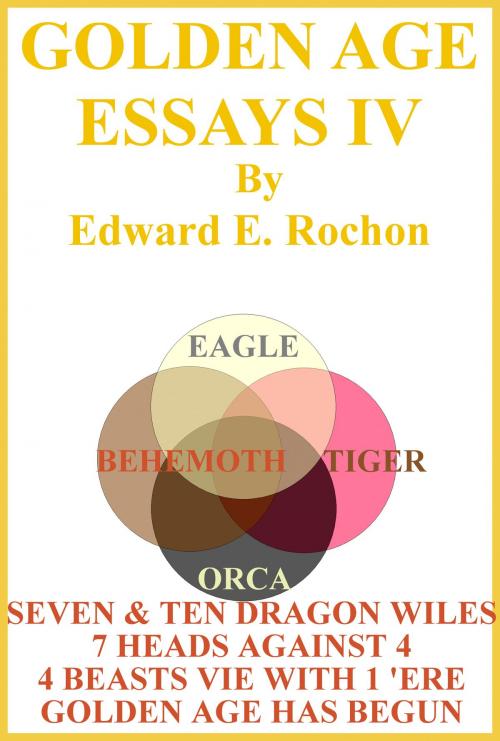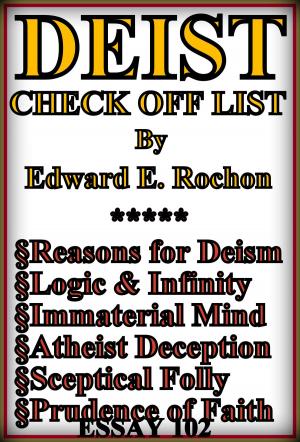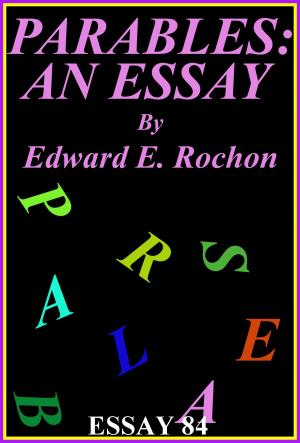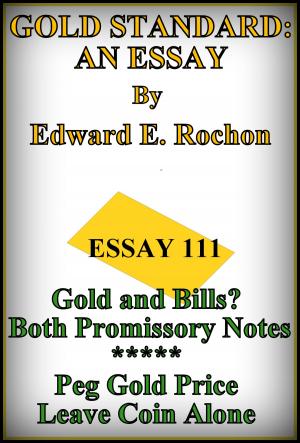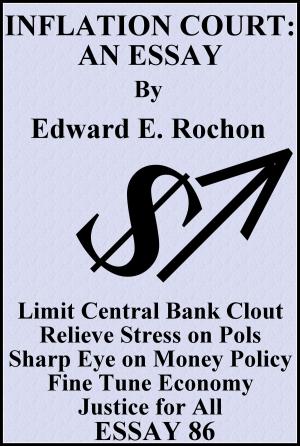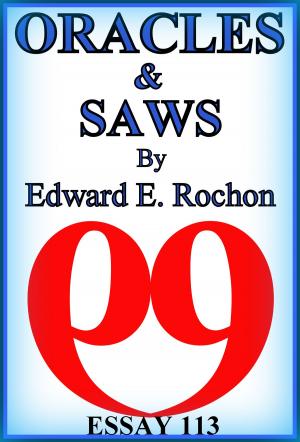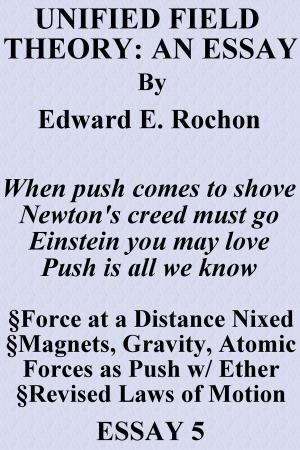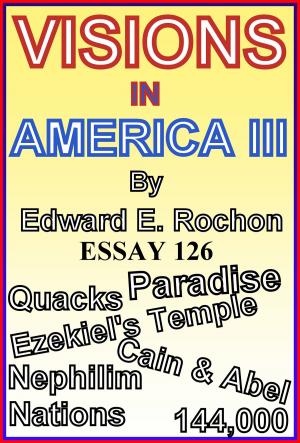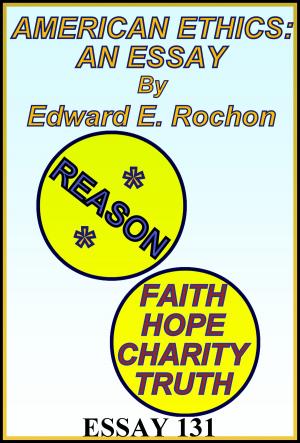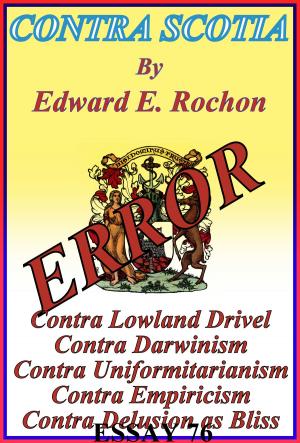| Author: | Edward E. Rochon | ISBN: | 9781311416308 |
| Publisher: | Edward E. Rochon | Publication: | November 27, 2014 |
| Imprint: | Smashwords Edition | Language: | English |
| Author: | Edward E. Rochon |
| ISBN: | 9781311416308 |
| Publisher: | Edward E. Rochon |
| Publication: | November 27, 2014 |
| Imprint: | Smashwords Edition |
| Language: | English |
These essays were placed by the order of publication, unlike my three prior collections. They start with a preface of intent. The first essay calls for a third constitution for the United States that is federal, republican, democratic and autocratically administered. No independent judiciary or legislative bodies are sanctioned. Watchers check the books, activities and report to the people. No more than 6 to 8 elected officials are elected by ballot. The second essay notes the existence of irony in the Bible. Irony can be subtle and passed over unnoticed. The essay maintains that the text supports the contention. The third essay accepts logic as innate to the human mind. It breaks its operation down to states, relationships and transient processing. States exist; relationships unite them, and the mind processes them. The fourth essay briefly chronicles the head trauma suffered by the author. It is a cautionary note to the reader about how head trauma can affect behavior without making the relationship between the trauma and its effect immediately evident. The fifth essay confronts divinity with the injustice of the world that he presides over. It challenges God to create a truly fair world. The sixth essay notes the effect of despair on human thought and desires. It concludes that suicide is pointless and that doing the best with the given is the best option. The seventh essay offers a plan for the United States to opt out of the evil balance of power politics that are tormenting the world. It is a military and economic plan to move the world to greater prosperity and hold at bay or crush the opponents of the welfare of the world. It is obvious that evil vampiric oligarchies prefer poverty and war to enhance their twisted lust for vain power and social status. It is not enough to be rich for these ghouls, they must have others in abject poverty. The eighth essay discusses methods of military fortification for the modern era of warfare. It condemns trenches as a good defensive measure and proposes towers buffered with earthworks and shooting back with enfiladed return fire. Patrols operate between and around the towers. Some improvements in body armor, armored vehicles proposed as well that draw infantry out the spam in a can armored vehicles of today. The ninth essay has a theological theme. A modest pyramid is proposed with a new covenant promise between man and God. We shed off Whore Babylon and go about turning the world into a garden of life and wisdom. The tenth essay critiques a video on YouTube attacking creationists, and deists in general as an undertone. They claim 25 fallacies that they themselves use in their own arguments for the most part. The eleventh essay criticizes modern Bible scholars for claiming things as fact that are not at all, but merely supposition. Their criticism is founded on assumptions such as impossibility of prophecy, minor text variations as indicative of fraud that could easily be explained by the use of scribes and secretaries. The twelfth essay advocates a more methodical trial method where all questions and answers are ruled on prior to jury trial as to admissibility and procedural conformity.
These essays were placed by the order of publication, unlike my three prior collections. They start with a preface of intent. The first essay calls for a third constitution for the United States that is federal, republican, democratic and autocratically administered. No independent judiciary or legislative bodies are sanctioned. Watchers check the books, activities and report to the people. No more than 6 to 8 elected officials are elected by ballot. The second essay notes the existence of irony in the Bible. Irony can be subtle and passed over unnoticed. The essay maintains that the text supports the contention. The third essay accepts logic as innate to the human mind. It breaks its operation down to states, relationships and transient processing. States exist; relationships unite them, and the mind processes them. The fourth essay briefly chronicles the head trauma suffered by the author. It is a cautionary note to the reader about how head trauma can affect behavior without making the relationship between the trauma and its effect immediately evident. The fifth essay confronts divinity with the injustice of the world that he presides over. It challenges God to create a truly fair world. The sixth essay notes the effect of despair on human thought and desires. It concludes that suicide is pointless and that doing the best with the given is the best option. The seventh essay offers a plan for the United States to opt out of the evil balance of power politics that are tormenting the world. It is a military and economic plan to move the world to greater prosperity and hold at bay or crush the opponents of the welfare of the world. It is obvious that evil vampiric oligarchies prefer poverty and war to enhance their twisted lust for vain power and social status. It is not enough to be rich for these ghouls, they must have others in abject poverty. The eighth essay discusses methods of military fortification for the modern era of warfare. It condemns trenches as a good defensive measure and proposes towers buffered with earthworks and shooting back with enfiladed return fire. Patrols operate between and around the towers. Some improvements in body armor, armored vehicles proposed as well that draw infantry out the spam in a can armored vehicles of today. The ninth essay has a theological theme. A modest pyramid is proposed with a new covenant promise between man and God. We shed off Whore Babylon and go about turning the world into a garden of life and wisdom. The tenth essay critiques a video on YouTube attacking creationists, and deists in general as an undertone. They claim 25 fallacies that they themselves use in their own arguments for the most part. The eleventh essay criticizes modern Bible scholars for claiming things as fact that are not at all, but merely supposition. Their criticism is founded on assumptions such as impossibility of prophecy, minor text variations as indicative of fraud that could easily be explained by the use of scribes and secretaries. The twelfth essay advocates a more methodical trial method where all questions and answers are ruled on prior to jury trial as to admissibility and procedural conformity.
